Recently we sat down with Stuart Hawkes to talk all things tech, work ethics, cryptic client briefs, and celebrate his nominees in 6 different categories at this year’s Brit Awards.
Six different categories and so many years in a row that you’ve been nominated.
Stuart: Yeah. Well, I’ve been doing this for a long time. *laughs*
Do you track which category you’ve been nominated most in?
Stuart: In the Brits, it’s such a variation. I think it might be pop and dance. I have mastered a lot of pop music. More recently, I’ve done more grime, stroke, and hip-hop stuff. Like Stormzy, J Hus, Headie One, and most recently Clavish,
Is there a nominee this year that stood up for you?
Stuart: Kojey Radical. I think that [Reason to Smile] was just such a brilliant album. Every track is good. So many people I know loved it. It’s great to have worked on it because it stands out.
As a mastering engineer, you work with an enormous array of different people. How do you approach your relationship with the artist?
Stuart: Every artist has different needs. Because quite often, you’re dealing with the artist’s music, and you never speak to them. I’ve never spoken to Charli XCX, for example. But I’ve done three, four albums, a couple of EPS, loads of her singles. Yet I’ve never actually spoken to her. All of the communication with that particular act goes through the label’s A&R. Whereas, with other artists, you’ll get far more… With Kojey Radical, when we mastered the album he came in. This was the first time I worked with him. And already he was here. So every artist is different. Some of them don’t get technically involved. They’re very artistic. And not so technical. A lot of the time, I’d say most of the time, you’re not dealing with artists you’re dealing with the mix engineer, or the producer or the label, the management, or combinations of. The relationship with the artists varies from job to job.
Do you think it helps to know the artist personally, or it doesn’t matter to you?
Stuart: Does it matter? It can help my job, it depends if they’re calling the shots. Recently, I did an album with one female pop star. And she came in for that. And she wasn’t involved. She didn’t mix it, she didn’t produce it. But she had a say on how it all sounded. So the most important thing from a mastering point of view is to have a working relationship and good communication with the person that’s calling the shots on how the project sounds. If that’s the artist, then it’s important to have that relationship or that communication with that one person. This is what’s truly important. I mean, it’s great to know the artists because the relationship with the music gets a bit deeper and you get closer to the project. You might have more of an understanding of the project, but it’s not essential from a mastering point of view. It’s a very technical stage. You need to be involved with the people that are calling the technical shots. Just depends on who that is.
Have you ever had that you mastered an album or a track, and then the artists came in, and the personality and the music clashed?
Stuart: Suppose to a degree, yeah, that does happen. I mean, you could almost say that with the album I mentioned earlier. We did it last week. She came in. She just found it all too loud and full-on, but that was the album she had made. So it was kind of like, well, I can’t undo that. I can’t deal with that at the mastering stage. Because that’s how the album sounded. Generally, the artists would match the music they’re making, although they can be steered somewhat by the label to make a certain kind of sound.
The list of your award nominations is endless at this point. Do you still get the feeling of excitement when you put on something and you genuinely like it?
Stuart: Yeah. God, yes. All the time. Although it’s funny, do you always recognize that something’s good? You don’t really…Well, I don’t. Sometimes it smacks you in the face. When you’re working on a track or an album, you’re kind of heavily involved with frequencies and levels and distortion and shapes of the sound of the music. You get involved in it on a technical level, but not so much on an artistic level. It comes back to when I am sitting in my car and a track comes on. Or I am sitting in a pub or restaurant or whatever, and an album comes on and I go, wow, this is great. And then I realize that I’d mastered it. But I was never really listening to it as a piece of music. I’m listening to the music technically. You’re not always switched off from it. Sometimes it’s like this *gestures at the studio around*, when I sit back, just dummy running something for a vinyl cut. But then you just put it on and play it through as an album. And it’s the first time you sit back and listen to it without worrying about anything technical. Quite often you’re not listening to it musically. You are listening to it technically. But, you know, sometimes you’d certainly put on stuff and go Wow. Definitely. Stuff grows on you. As you get closer to the track, you listen to it again, more technically. You do need a bit of distance to appreciate how musically good an album is. You need to get out of the [mastering] room. Stop looking at meters. Just use your ears.
Do you find it hard to do?
Stuart: Listen to music? Yeah, well, when I’m in here, it’s all technical. But nearly every time I’ve mastered an album, I would send myself a link, and then on the way home, I would listen to it on the train, because then I’m listening to it as an album and I can switch off from what meters are doing and thinking about changing stuff. Just listen to it from beginning to end at the same volume throughout and in the environment that other people would normally listen to it in. Mostly being out and about and on their headphones. And that’s great. That’s when you get to judge the mastering.
What is your usual workflow when you’re mastering an album?
Stuart: There’s no specific workflow. It’s different for every job. I think what is very important is to have an understanding of what the client has been listening to as well. And what you’ve got. Because you might have a whole set of pre-masters to master from. The files that you’re working from, but then that’s not necessarily what the clients were listening to. They might have a set of MP3 refs or something that they’ve been listening to, that have been compressed a lot more or EQed and changed into MP3s and dicked around with. And you’ve got something else. It’s important to listen to both to understand what to do, and what not to do. Sometimes you don’t want to wander too far from what the clients have been listening to if they like it. The workflow must include an understanding of what the client does and doesn’t like about what they’ve got. But there’s no specific thing that I do. I think… Well, is there? I mean, I’ll get all the tracks in the right order. And just start to listen to it, and then just jump in to see where it takes me. Because I will stick around with stuff for ages, go back and forth, and change my mind… *laughs*
Do you think you’re a perfectionist?
Stuart: Yeah, I think. You have to be. But you don’t know what perfect is. Quite often in this job, you’re not trying to please yourself, you’re trying to please the client. So you have to put yourself in the client’s shoes. I’m an audiophile. And I like things to sound nice. I mean, technically correct. That does please me, but then you might hear the track and then hear the file that the clients approved or the producers approved. And it is super loud or squashed and sounds quite edgy. So you’ve got to go with the assumption or ask if that’s the effect that the client wants. So you might have to do something that’s kind of counterintuitive to being a perfectionist. You’re making something to the brief that the client wants. What’s the perfect haircut? There isn’t one. If the client wants it to look messy, then you can get it to look messy. If they want it to be super slick, then you do that. It is a taste thing. All you’re doing is just trying to understand what the client wants, and then achieve that as well as you can. There’s no definite way to master a record. If I’m just sitting here, I haven’t got a ref, I’ve got a very low-level premaster that sounds very clean. And I haven’t spoken to the client. I’ve just got to do what I like and what I think the client will like, first of all. And then give it to the client and let them say if they want it louder or more compressed or if they want the bass end to be ridiculously big or disproportionate to the top end.
Do you prefer to have a clear brief or just go with the flow?
Stuart: Good question. I prefer to have a bit of guidance. I think it’s good to know because sometimes it’s quite wild how differently I might do something to how the client wants it. If you’ve got no instruction, it’s down to interpretation, isn’t it? You might do something and think, Oh, I’ve got to make it sound raw and make it very aggressive. And then you do that. And the client will come back and say, No, we wanted this to sound organic and jazzy.
Does it feel like solving a riddle sometimes?
Stuart: I had a client once who said to make the sound more yellow and less orange. It was sort of cryptic. *smiles* Or they can say something like, can you make it louder. But more dynamic. You’ve got to squash it, but give it more dynamic. Just things that completely throw you. And we ask if they’ve got any references. A lot of people interpret that as other tracks that are out there that they want it to sound like. We [the studio team] mean the limited reference versions. I still think it’s quite handy to know what tracks people like the sound of. But you might get a rock track, and then they’ll send you an Adele track as a reference. What are you supposed to make of that? I don’t know. Sometimes you have to take the brief that someone gives you with a pinch of salt as there’s only so much you can do. They might have done their mixing on a laptop while waiting for the bus. And then they’ll send you a mix that’s been done by one of the top guys. And it’s an amazing-sounding mix. And they’ve sent you this first attempt at a mix ever wanting to sound like this. It is not going to happen. Even if you try your best.
Do you have a favorite piece of studio gear and why?
Stuart: My big speakers. Why? Because you can hear what you’re doing. There are two schools of thought and this comes back to the sound systems. What’s best to have really good speakers or a really good signal path? Because the audio itself doesn’t go through the speakers. You’re just hearing it through them. So the argument would be that it’s best to have good digital to analog converters or compressors. If there’s a bad bit in the audio chain, it will never sound good, which is true. I would find my job impossible to do if I couldn’t hear what I was doing. My favorite thing is PMC BB5 XBs that cost a bloody fortune. It’s not about the speaker itself, but the acoustics as well. Because if you want to know what’s going on with the bass end down at 20 hertz, there’s no point in putting it on the little PSI nearfield. If you can’t hear it, you won’t reproduce it. Even if you’ve got these great big speakers, if the room is not right, you won’t hear it. There is this whole sort of relationship between the speakers and the environment, which is very important. Hearing what you’re doing is the most important thing to me. So, I’d rather have none of this kit, but just a computer to work with. As long as I’ve got these. It’s the most expensive bit of kit in the room.
Finally, a message for the BRITs nominees?
Stuart: Well done. And I hope you win.
Listen to Stuart’s latest releases here
Stay in the know
Sign up to our email to be up to speed with what’s going on in at Metropolis.


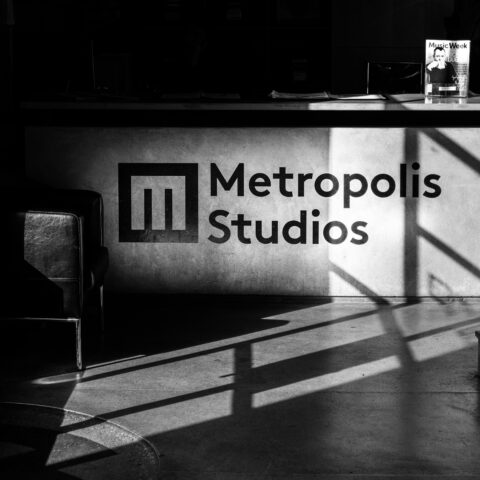




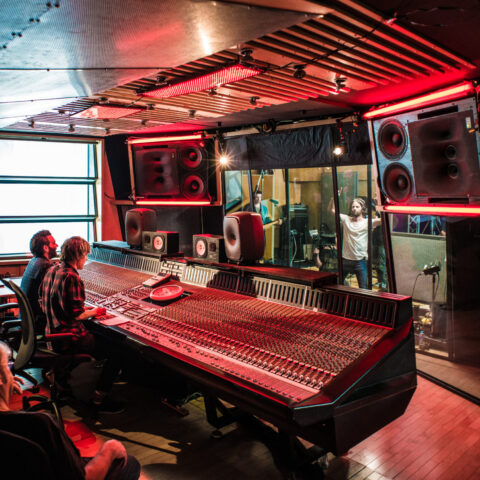

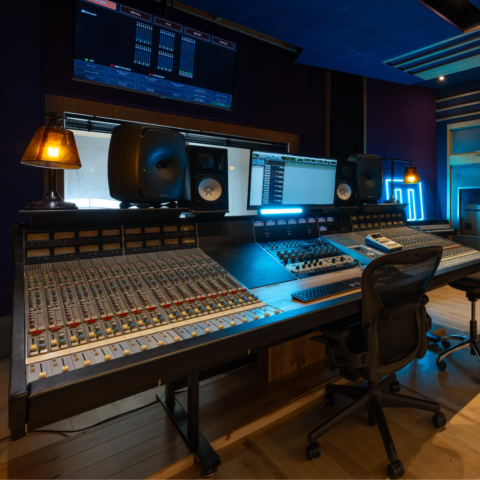
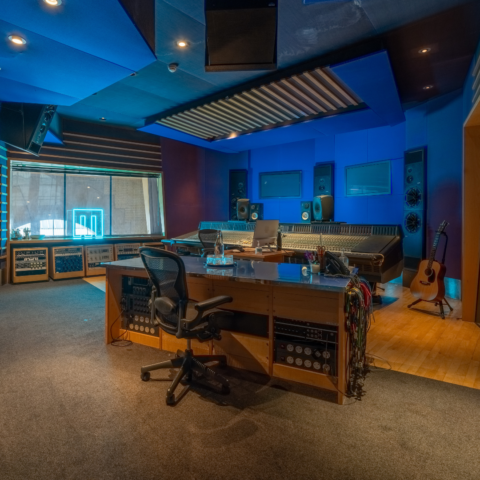
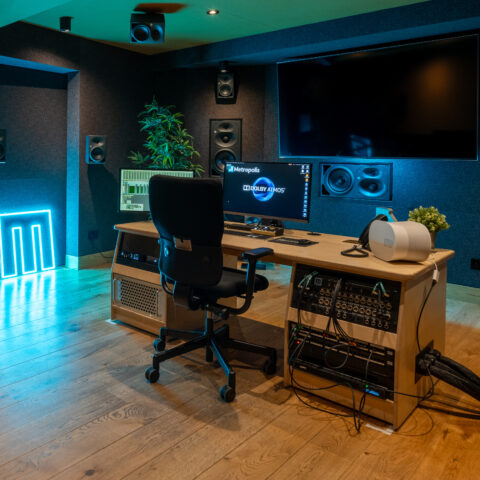
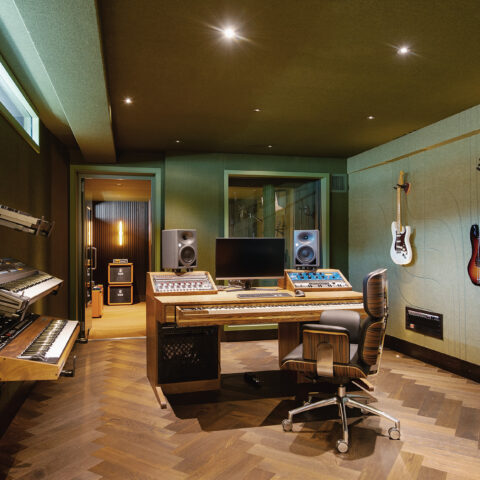
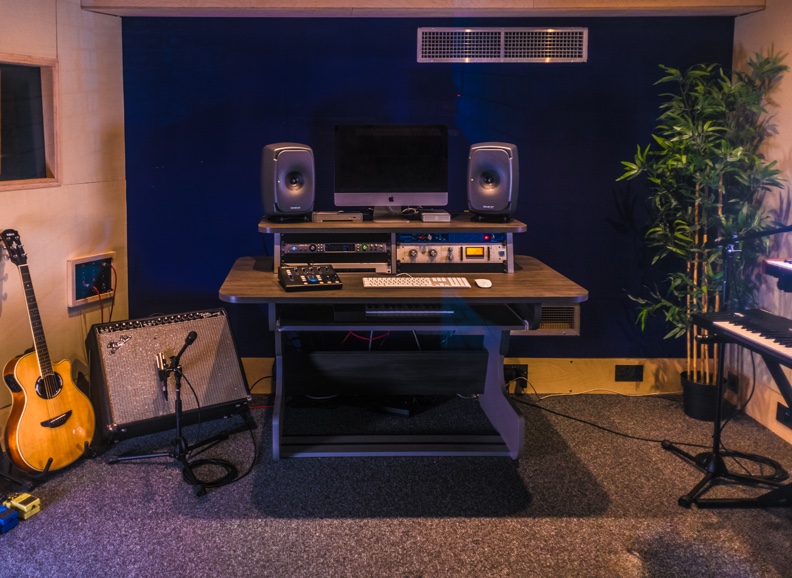








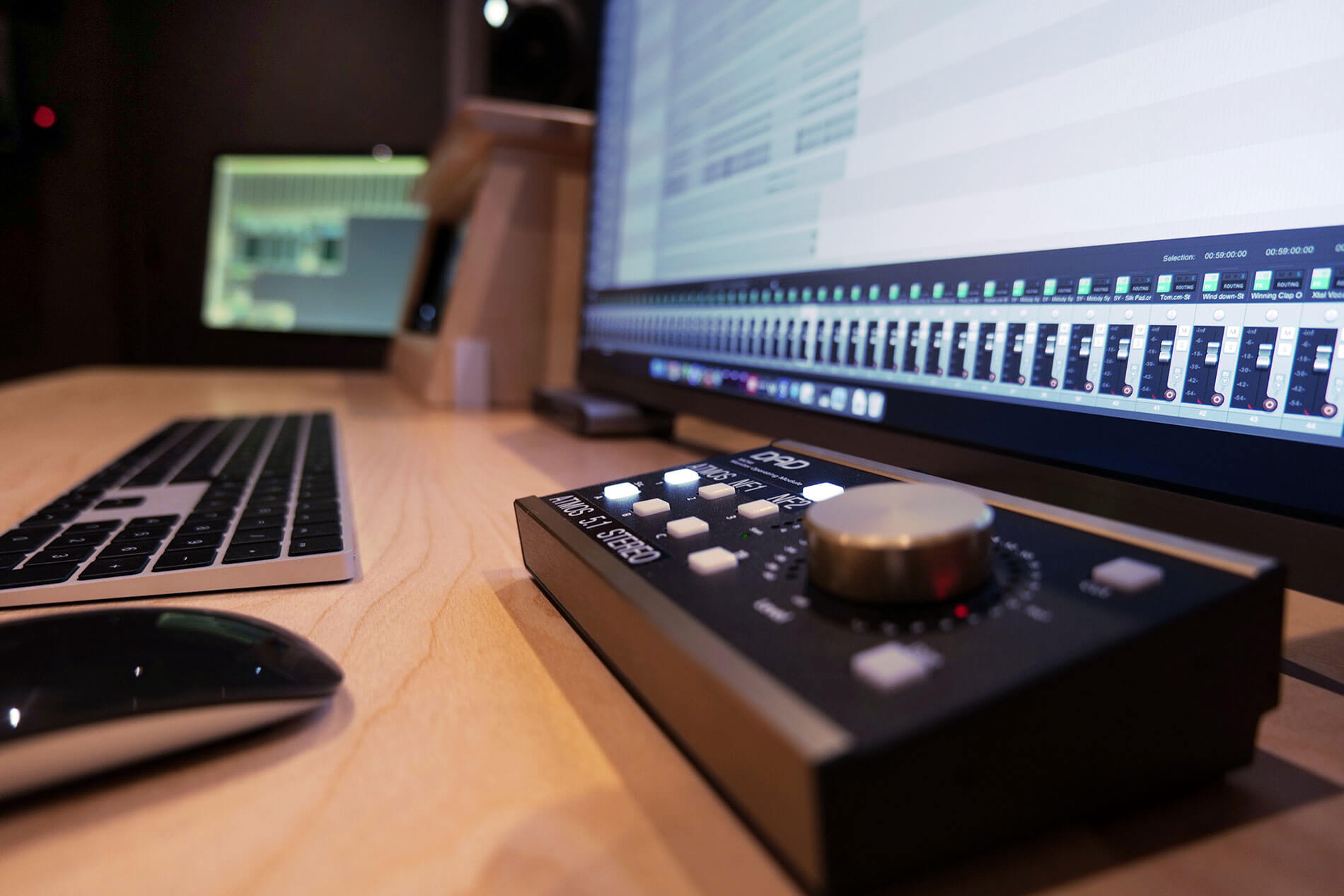
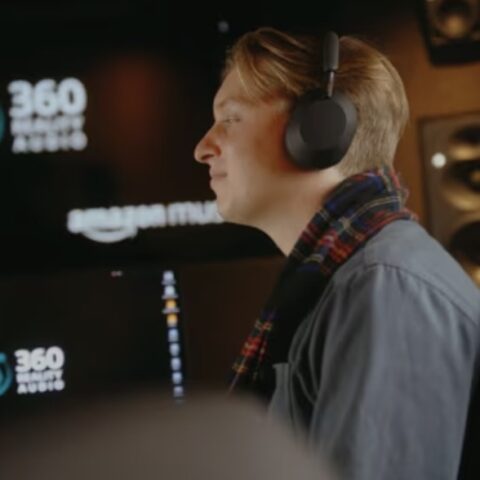
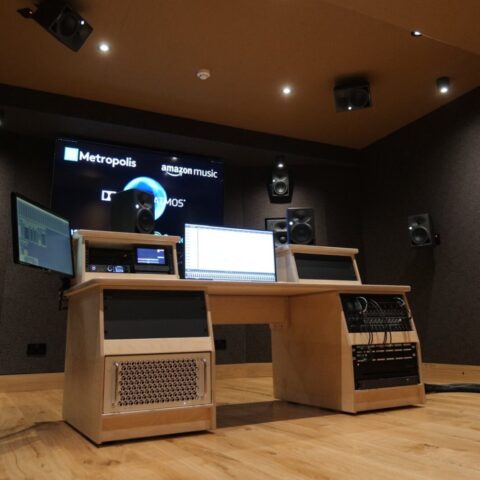



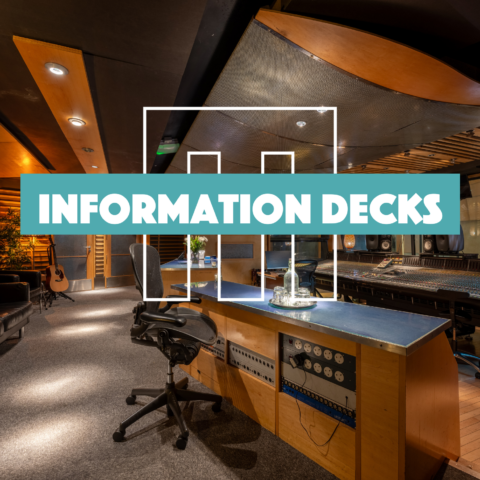



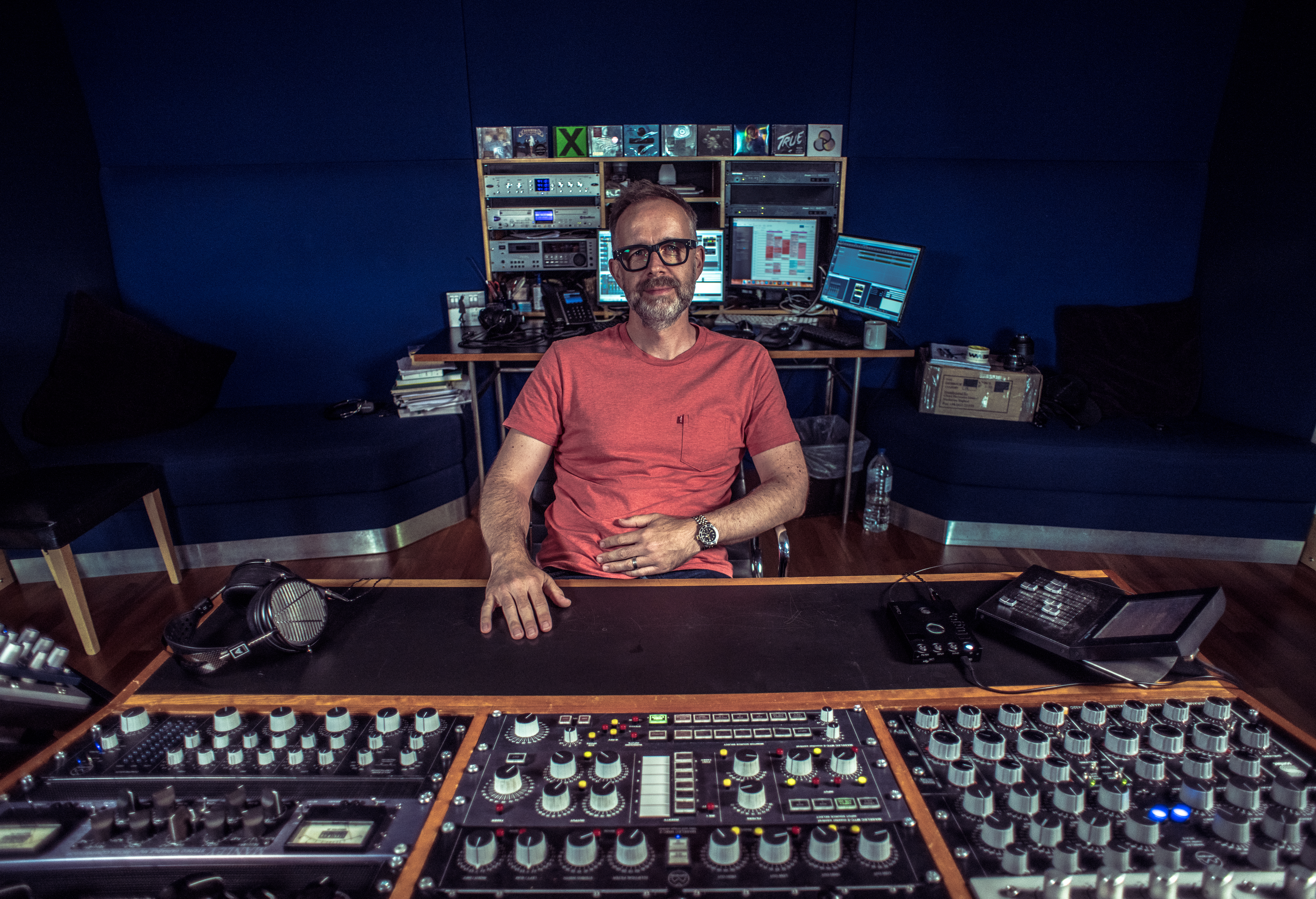
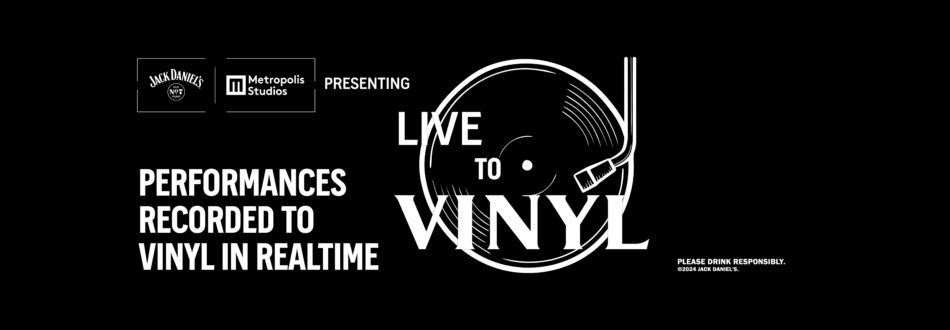


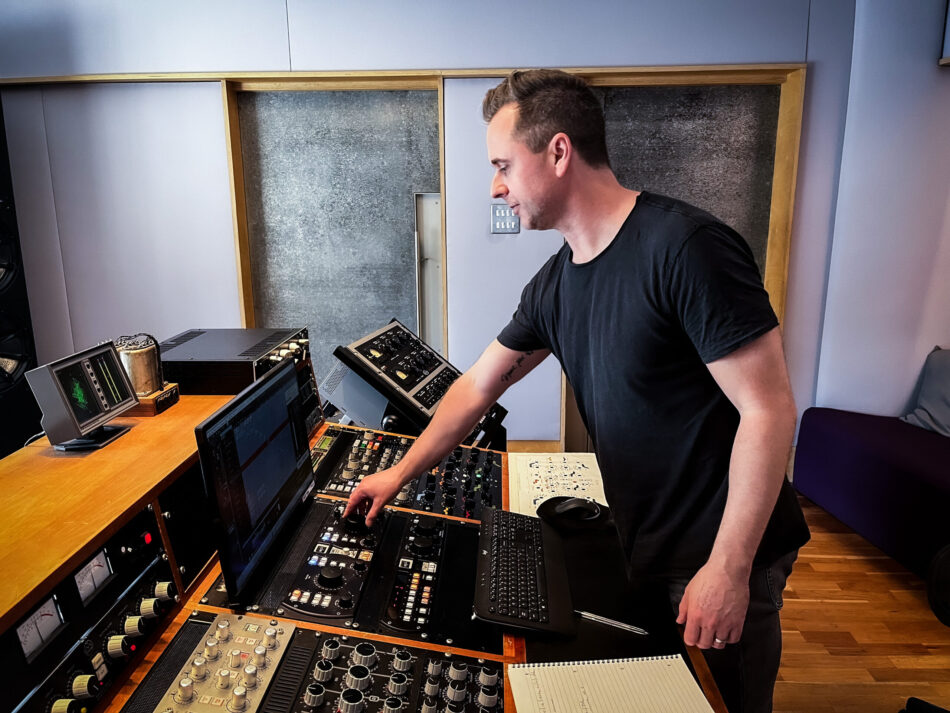
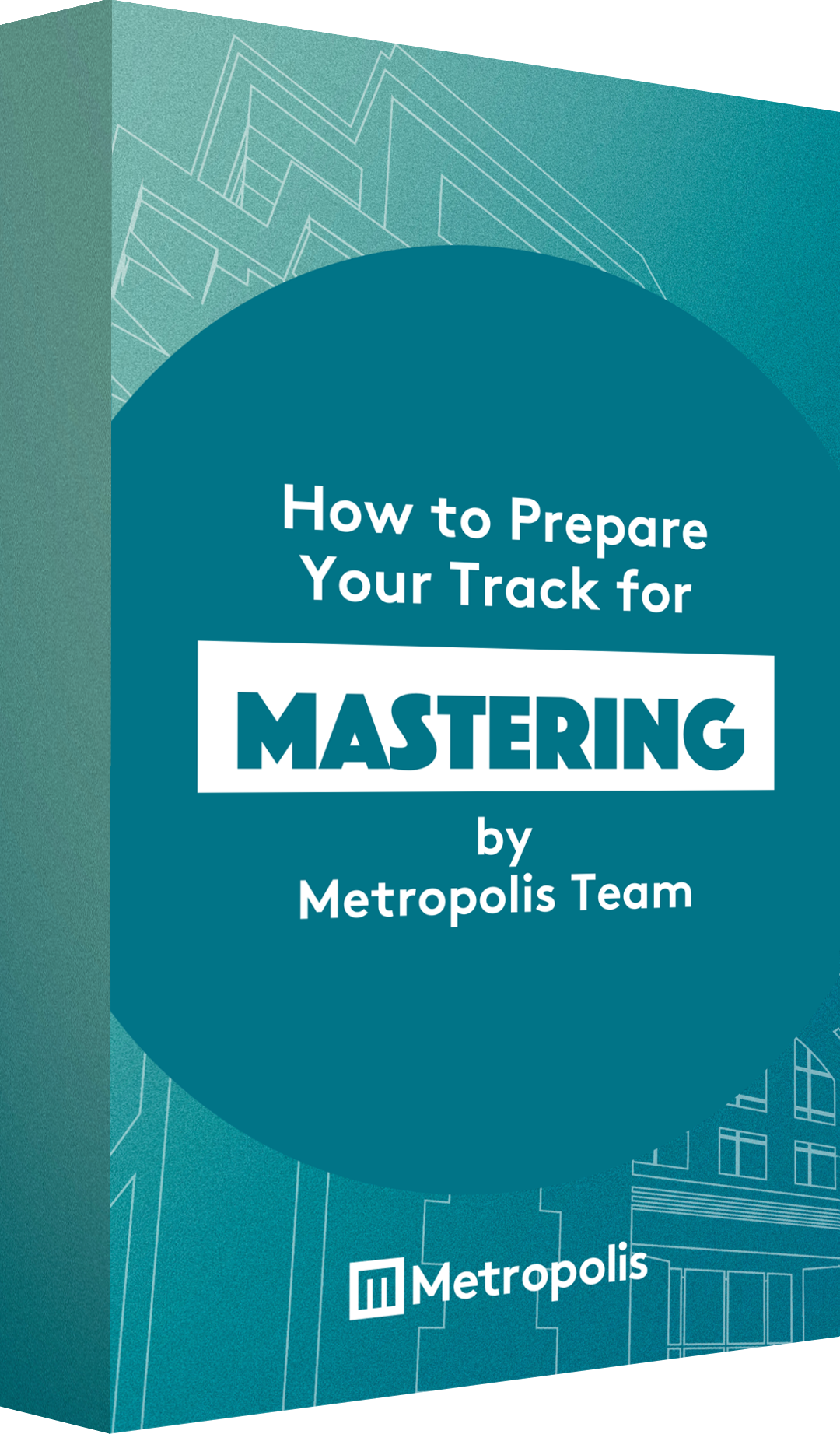
Share this